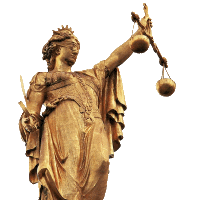Hello.
This is my first question in the Forum, please accept my apologies if my format of asking is incorrect.
Below is an extract of a 1688 Zelhem Court record regarding the estate of a Berent Dimmendael who died circa 1680. My understanding of those times is that married women could not own property and I would like to know whether that led to courts sometimes referring to the husband of the heir rather than the heir herself.
‘….. op die gereed goederen van Evert Dimmendael en de wed.w van Jan Coops en Hendrick Hummelinck als kinderen en erfgenaemen van wijlen Berent Dimmendael ….. ’
Rechterlijk Archief van het Landdrostambt Zutphen
Archieftoegangsnummer 3021 - Inventarisnummer 921
Vindplaats: Erfgoedcentrum Achterhoek en Liemers te Doetinchem
Link - https://www.flickr.com/photos/genealogiedomein/3862271167/in/album-72157622036331229/
I would like to rely on the court’s words meaning Hendrik Hummelinck is the true son of Berent, but can I? If either of Hendrick’s wives were Berent’s true heir, might the court still refer to Hendrick as above instead of naming the true heir in the record?
NOTE: By the time of this court case, Hendrick’s first wife had died (circa 1680-83) and he had remarried, probably circa 1685.
Thank you for any help you can give.
 Rechtspraak, notariaat, wetgeving » Do 17th century court records involving estates refer to the husband instead of the female heir? opgelost
Rechtspraak, notariaat, wetgeving » Do 17th century court records involving estates refer to the husband instead of the female heir? opgelost